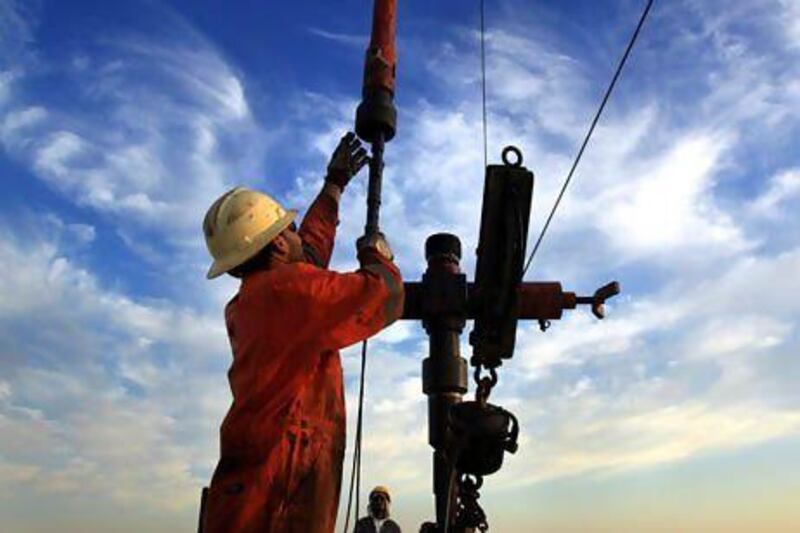Prices of Brent crude slipped below US$100 per barrel yesterday as the IMF warned that a prolonged fall in prices would lead to fiscal deficits for most Middle East oil exporters.
The Washington-based organisation also forecast lower GDP growth for the Middle East and North Africa (Mena) region for the year, citing flat oil output among the GCC and lingering uncertainty in unrest-hit countries.
Growth in the Mena region would fall to 3 per cent this year, from 4.75 per cent last year, it estimated. Expansion in the UAE would slip to 3.1 per cent, down from 3.9 per cent last year.
Brent crude dipped below $100 per barrel to its lowest price since July overnight on Monday. It followed the release of weaker-than-expected GDP data from China, showing growth registered 7.7 per cent in the first quarter of the year, down from 7.9 per cent in the fourth quarter.
In its latest World Economic Outlook report, released yesterday, the IMF warned of the risks to the GCC of a slowdown across emerging markets, the main drivers of the global recovery.
Across the short term, many regional oil exporters had low public debt levels and would be able to draw upon the reserves they had built up to sustain demand in the event of a decline in oil prices.
"Nonetheless, a prolonged fall in oil prices brought about by lower global economic activity would result in fiscal deficits for most oil exporters," IMF analysts wrote in the report.
The oil price that GCC governments need to balance their budgets has crept up in recent years as spending on wages and other social spending and infrastructure have risen. In a report last October, the IMF estimated Bahrain as having the highest break-even price at about $120 per barrel. The UAE's was closer to $80, it estimated.
"For oil exporters, increases in hard-to-reverse government expenditures such as wages should be contained to build resilience to a possible sustained decrease in the oil price," analysts wrote. "Capital expenditures can be sustained but need to be prioritised to ensure that the quality of public investment is not compromised."
The IMF warned that a slowdown in emerging market growth could weigh on oil prices, putting the break-even levels under pressure.
Using an average oil price across Brent, West Texas Intermediate and Dubai Fateh, the IMF estimated prices would fall below $100 per barrel before settling between $90 and $85 by 2018.
Prices would fall more steeply if demand deteriorated more rapidly in emerging markets.
"Despite the drop in oil prices over the past few days, the average price in the first quarter was broadly unchanged from last year's average. If oil prices continue to decline, we could see some scaling back of oil output in the region," said Khatija Haque, a senior GCC economist at Emirates NBD.
Emirates NBD forecasts growth of 3.8 per cent in the UAE this year, compared with 3.7 per cent last year.





